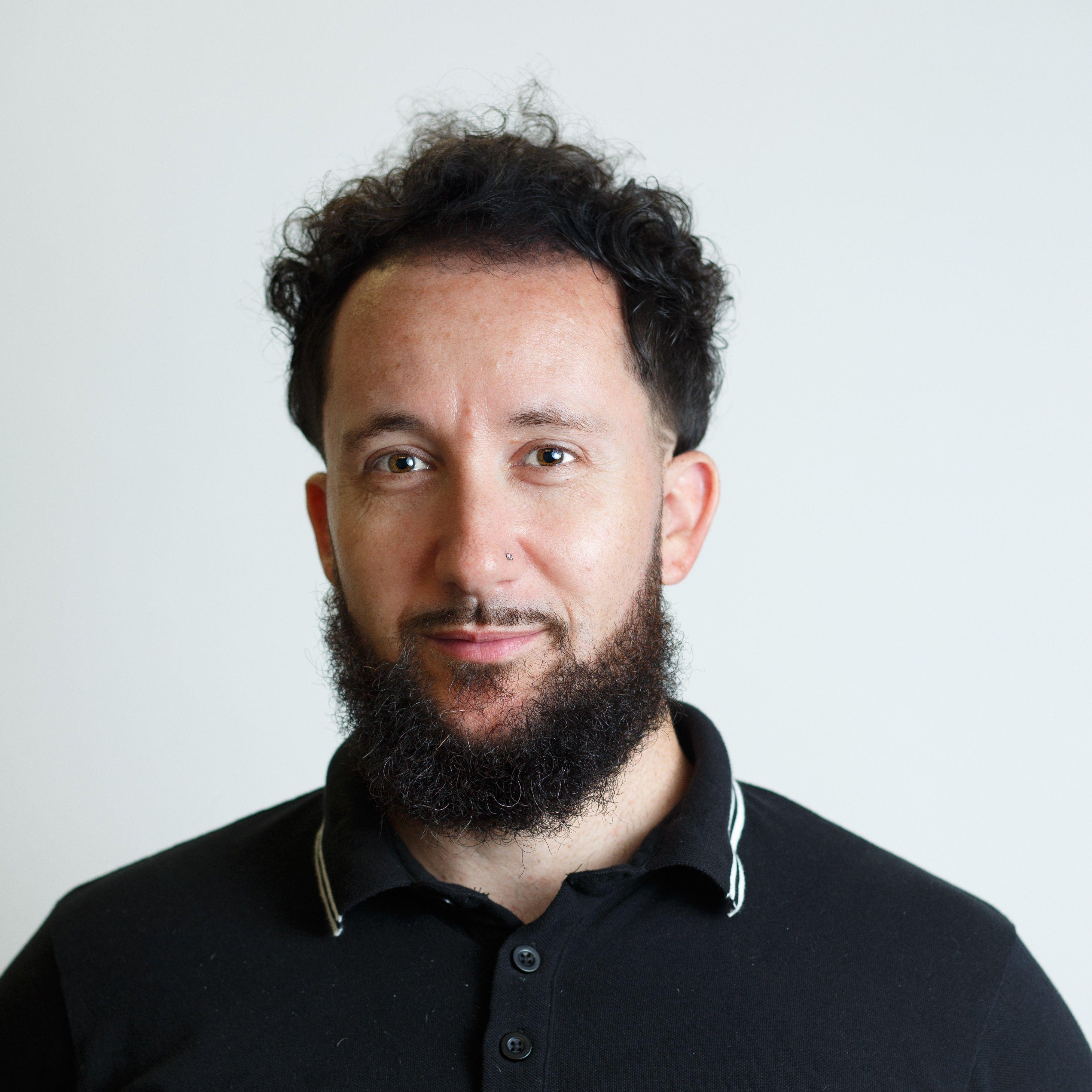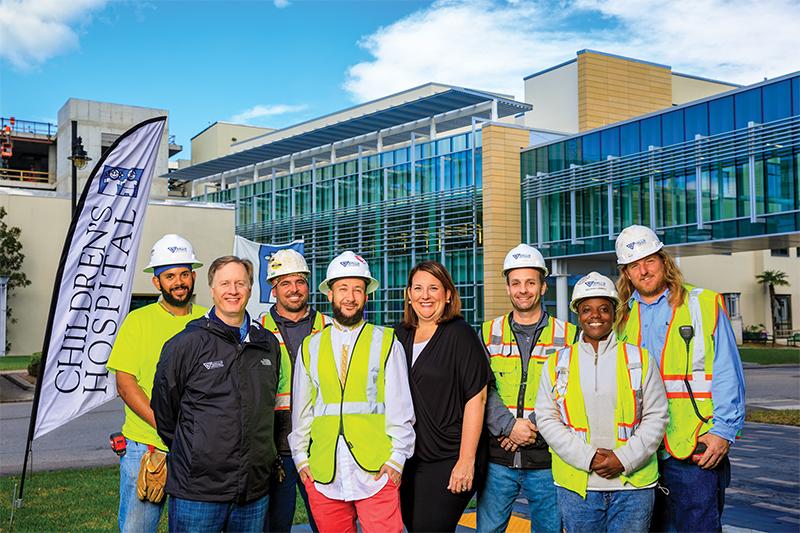MSW grad brings social work to the construction industry
Powell DiGangi, LMSW, learned to look at communities from a bird’s eye view during his Introductions to Organizations and Community Practice class at Tulane School of Social Work – a class he is now teaching for the first time. And there’s one thing he wants his students to walk away knowing: social work requires creativity.
“Really look at the world we live in, the community you live in, the community you're from, and ask yourself: where is there a need? Then think outside the box to solve it,” DiGangi said. “Social workers are problem solvers, and one of the beauties of social work is that we're not confined to one thing. Take advantage of that.”
A winding path led DiGangi to social work – after graduating from University of California, he worked as a union organizer for nearly a decade before pursuing his Master of Social Work (MSW). Now, in addition to being an Adjunct Instructor for TSSW, he acts as the owner and founder of BEAM – an agency that partners with construction companies to empower workers, resolve conflict, and connect employees to necessary resources.
Social workers have real power – we have a voice. We need to use it in whatever way we can.
Powell DiGangi, LMSW
After graduating with his MSW, DiGangi got a job at Café Reconcile, a nonprofit organization that prepares young New Orleanians for the workforce by providing career and educational opportunities. Leveraging his social work skills to support the workforce, he says, “made total sense” and became his life’s mission.
When the Greater New Orleans Foundation announced that they were looking to fund a pilot program addressing job turnover in hospitality, healthcare, and construction, DiGangi jumped at the opportunity.
“After about five years of building the database, services, and protocols around confidentiality, we really had something great that employers could benefit from,” DiGangi said. “I loved that the burden of social work support for the workforce was being championed by the employer. It was so great to see employers understand how the well-being of their workforce off the job connects to their productivity and morale and retention on the job.”
Though the program supported multiple industries, construction is where it flourished. When the time came for the Greater New Orleans Foundation’s pilot program to come to an end, DiGangi was prepared to open his own construction workforce benefit agency: BEAM.
“I'm on job sites with a hard hat and steel-toed boots, connecting with plumbers, pipe fitters, electricians, project managers – everyone. These are people who might not have time to find resources or might not want to go out of their way to ask for help. I’m meeting them at their job, so it's not an extra burden to solicit services.”
By being embedded into the workforce and talking with these employees, DiGangi is able to resolve tension between coworkers, promote work-life balance, and alleviate real life barriers that often lead to high workplace turnover. BEAM boasts of achieving over 90% retention rates with employees that use their services.
“There are a lot of job training programs, but once you’re hired, you just have to do everything on your own, without support. My contribution,” DiGangi said, “is helping people stay employed.”
About 20% of DiGangi’s conversations center around relationships – with employees’ parents, children, partners – and another 20% relate to legal barriers such as criminal, traffic, and custody cases. Other common problems are mental health concerns like substance use, grief, and anxiety, and financial or housing burdens.
“When we first started building this program, we thought it would exclusively be used by younger employees,” DiGangi said. “But I have clients in their 40s, 50s, and 60s. I have the executive board member going through a divorce coming to me, just like the 19-year-old new helper trying to get his driver's license back.”
But BEAM does not only provide support for short-term issues. During his time at TSSW, DiGangi researched at the Torture Traumatology Institute, where he reviewed testimonies of trauma and torture survivors under Dr. Charles Figley. There, he saw firsthand the impact of collective trauma, which would prove crucial to his later work.
“The Hard Rock Café collapse reverberated through the construction industry,” DiGangi said. “I remember us having a meeting with some of our foremen, and they were like, We've got young guys who are not sure they even want to work anymore, knowing that you could just not make it home.”
DiGangi was on-site in the immediate aftermath of the collapse, providing trauma support for the employees who witnessed the tragedy, but he was also there in the weeks and months that followed. While not traditional therapy, DiGangi says his work has a “therapeutic touch.” By being on-site and establishing relationships with workers, he’s able to build trust, identify people’s problems, and address all kinds of needs – big and small.
A culmination of DiGangi’s labor background, his grandfather’s admiration for construction and trade labor, and his social work education, BEAM is an innovative solution to a specific, real-world problem. DiGangi encourages social workers to think creatively about the kinds of services and infrastructure that will best serve their communities.
“Social workers have real power – we have a voice,” he said. “We need to use it in whatever way we can.”


